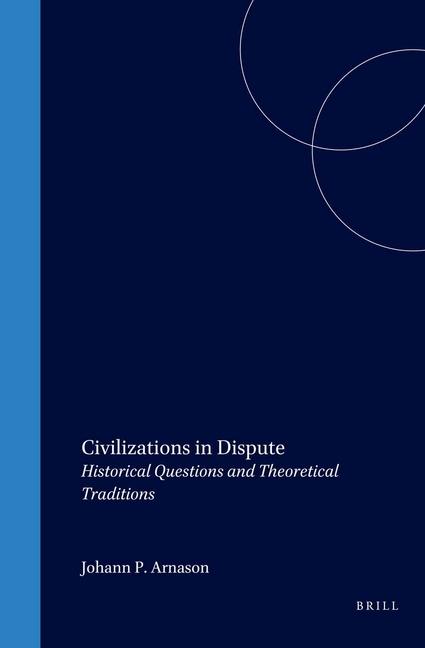
Zustellung: Mo, 11.08. - Sa, 16.08.
Versand in 3-4 Wochen
VersandkostenfreiThis book begins with a critical survey of current debates on the "clash of civilizations," goes on to discuss classical and contemporary approaches to civilizational theory, and concludes with an outline of a conceptual framework for comparative analysis.
Inhaltsverzeichnis
Preface Acknowledgements
1. The Rediscovery of Civilizations 1.1 Civilizational claims and counter-claims 1.2 Legacies and trajectories 1.3 Civilization and modernity 1.4 Rethinking basic concepts
2. Classical Sources 2.1 Durkheim and Mauss: The sociological concept of civilization 2.2 Max Weber: The comparative history of civilizations 2.3 From Spengler to Borkenau: Civilizational cycles and transitions
3. Patterns and Processes 3.1 Exits and openings 3.2 Benjamin Nelson: Civilizational contents and intercivilizational encounters 3.3 S.N. Eisenstadt: Civilizational breakthroughs and dynamics 3.4 Jaroslav Kreji: Civilizations as paradigms of the human condition
4. Meaning, Power and Wealth: Changing Constellations 4.1 Domains and dimensions of socio-cultural analysis 4.2 Theorizing civilizations 4.3 Configurations of meaning, I: Cultural articulations of the world 4.4 Configurations of meaning, II: Religious traditions and civilizational trajectories 4.5 Institutional patterns, I: Politics and ideology 4.6 Institutional patterns, II: The historical forms of economic life 4.7 Culture, institution and organization: The case of science 4.8 Intercivilizational encounters 4.9 Civilizational groupings 4.10 Traditions in transformation 4.11 Civilizations and regions
1. The Rediscovery of Civilizations 1.1 Civilizational claims and counter-claims 1.2 Legacies and trajectories 1.3 Civilization and modernity 1.4 Rethinking basic concepts
2. Classical Sources 2.1 Durkheim and Mauss: The sociological concept of civilization 2.2 Max Weber: The comparative history of civilizations 2.3 From Spengler to Borkenau: Civilizational cycles and transitions
3. Patterns and Processes 3.1 Exits and openings 3.2 Benjamin Nelson: Civilizational contents and intercivilizational encounters 3.3 S.N. Eisenstadt: Civilizational breakthroughs and dynamics 3.4 Jaroslav Kreji: Civilizations as paradigms of the human condition
4. Meaning, Power and Wealth: Changing Constellations 4.1 Domains and dimensions of socio-cultural analysis 4.2 Theorizing civilizations 4.3 Configurations of meaning, I: Cultural articulations of the world 4.4 Configurations of meaning, II: Religious traditions and civilizational trajectories 4.5 Institutional patterns, I: Politics and ideology 4.6 Institutional patterns, II: The historical forms of economic life 4.7 Culture, institution and organization: The case of science 4.8 Intercivilizational encounters 4.9 Civilizational groupings 4.10 Traditions in transformation 4.11 Civilizations and regions
Produktdetails
Erscheinungsdatum
25. September 2003
Sprache
englisch
Seitenanzahl
286
Autor/Autorin
Johann P Arnason
Verlag/Hersteller
Produktart
gebunden
Gewicht
835 g
Größe (L/B/H)
247/167/31 mm
ISBN
9789004132825
Pressestimmen
"'This is a rare and unusual manuscript of breathtaking scholarship, written by a senior scholar in full command of his field. Arnason seeks nothing less than to legitimate the study of civilizations as an independent realm of scholarly inquiry---and succeeds masterfully.'
Bewertungen
0 Bewertungen
Es wurden noch keine Bewertungen abgegeben. Schreiben Sie die erste Bewertung zu "Civilizations in Dispute" und helfen Sie damit anderen bei der Kaufentscheidung.








